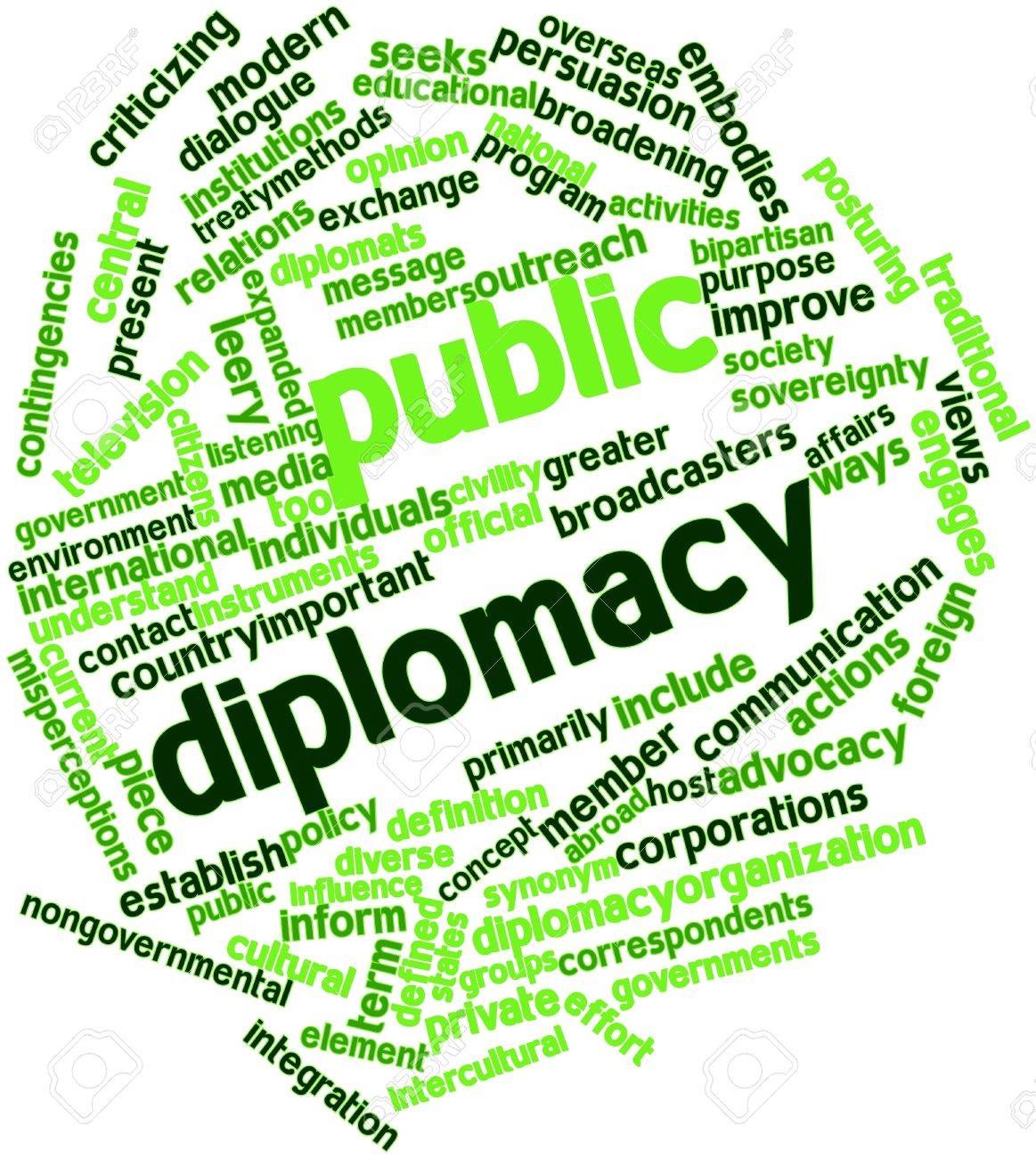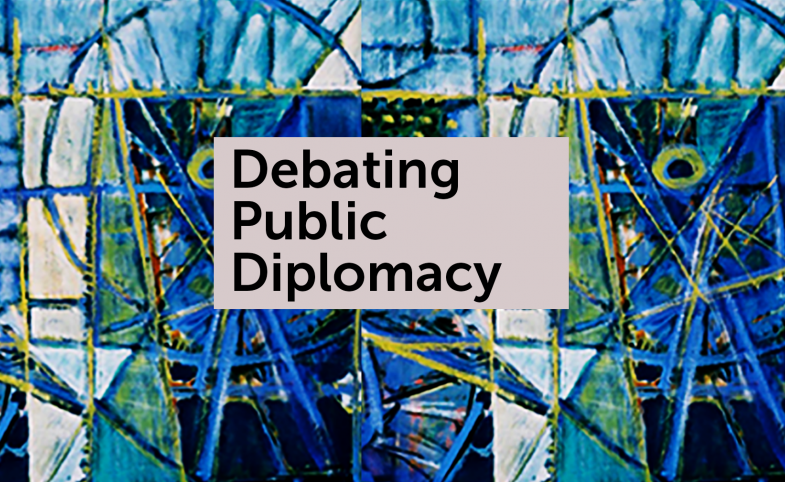Reid Standish and Robbie Gramer, foreignpolicy.com, March 7, 2019;
see also (1)
Jessikka Aro was to receive a “Women of Courage” prize. Then officials read her Twitter feed.
 First lady Melania Trump honors the International Women of Courage awardees during a ceremony at the State Department in Washington on March 29, 2017. (Jim Watson/AFP/Getty Images) Jessikka Aro, a Finnish investigative journalist, has faced down death threats and harassment over her work exposing Russia’s propaganda machine long before the 2016 U.S. presidential elections. In January, the U.S. State Department took notice, telling Aro she would be honored with the prestigious International Women of Courage Award, to be presented in Washington by Secretary of State Mike Pompeo.Weeks later, the State Department rescinded the award offer. A State Department spokesperson said it was due to a “regrettable error,” but Aro and U.S. officials familiar with the internal deliberations tell a different story. They say the department revoked her award after U.S. officials went through Aro’s social media posts and found she had also frequently criticized President Donald Trump.“It created a shitstorm of getting her unceremoniously kicked off the list,” said one U.S. diplomatic source familiar with the internal deliberations. “I think it was absolutely the wrong decision on so many levels,” the source said. The decision “had nothing to do with her work.”The State Department spokesperson said in an email that Aro was “incorrectly notified” that she had been chosen for the award and that it was a mistake that resulted from “a lack of coordination in communications with candidates and our embassies.”“We regret this error. We admire Ms. Aro’s achievements as a journalist, which were the basis of U.S. Embassy Helsinki’s nomination,” the spokesperson said.Aro received a formal invitation to the award ceremony not from the embassy but from the State Department’s Office of the Chief of Protocol on Feb. 12.There is no indication that the decision to revoke the award came from the secretary of state or the White House. Officials who spoke to FP have suggested the decision came from lower-level State Department officials wary of the optics of Pompeo granting an award to an outspoken critic of the Trump administration. The department spokesperson did not respond to questions on who made the decision or why.To U.S. officials who spoke to FP, the incident underscores how skittish some officials—career and political alike—have become over government dealings with vocal critics of a notoriously thin-skinned president. The Trump administration has barred the hiring of prominent Republican foreign-policy experts who publicly denounced the president during the 2016 election season, including some who have since walked back their criticisms. As another example, Trump himself last year revoked the security clearance of former CIA Director John Brennan, who regularly castigates the president on Twitter, and threatened to follow suit with other former national security officials who did the same.In the minds of some diplomats, this has created an atmosphere where lower-level officials self-censor dealings with critics of the administration abroad, even without senior officials weighing in.Aro said the decision to cancel her award and corresponding trip to the United States caught her completely by surprise.“[When] I was informed about the withdrawal out of the blue, I felt appalled and shocked,” Aro told FP. “The reality in which political decisions or presidential pettiness directs top U.S. diplomats’ choices over whose human rights work is mentioned in the public sphere and whose is not is a really scary reality.”Aro is a prolific Twitter user and was originally chosen for the award because of her investigative work exposing Russian troll factories. She often debunks misinformation spread online and comments on major news events related to propaganda and election interference, including Brexit and the ongoing investigation by special counsel Robert Mueller into links between the Russian government and Trump’s campaign. She has regularly tweeted criticism about Trump’s sharp political rhetoric and attacks on the press. Aro also helped organize a demonstration in Helsinki when the Finnish capital hosted a summit between Trump and Russian President Vladimir Putin in July 2018.“I use Twitter to exchange ideas and share information freely,” Aro said. “I find the idea of U.S. government officials stalking my Twitter and politicizing my perfectly normal expressions of opinion deeply disturbing.”After first being notified she would get the award, Aro filled out forms and questionnaires at the request of officials and cancelled paid speaking engagements to travel to Washington to attend the March 7 ceremony in Washington. The State Department also sent her an official invitation to accept the award and planned an itinerary for a corresponding tour of the United States, complete with flights and high-profile visits to newspapers and universities across the country.Since 2007, the State Department has held an annual award ceremony honoring women around the world who “have demonstrated exceptional courage and leadership in advocating for peace, justice, human rights, gender equality, and women’s empowerment, often at great personal risk and sacrifice,” according to the department’s website.This year, the award is being given to Razia Sultana of Bangladesh; Naw K’nyaw Paw of Myanmar; Moumina Houssein Darar of Djibouti; Magda Gobran-Gorgi (“Mama Maggie”) of Egypt; Col. Khalida Khalaf Hanna al-Twal of Jordan; Sister Orla Treacy of Ireland; Olivera Lakic of Montenegro; Flor de Maria Vega Zapata of Peru; Marini de Livera of Sri Lanka; and Anna Aloys Henga of Tanzania.The awards “demonstrate the United States commitment to gender equality, social inclusion, and advancing the global status of women and girls from all backgrounds across sectors as part of our foreign policy,” State Department deputy spokesman Robert Palladino said in a press briefing on Tuesday.Pompeo will host the ceremony honoring the awardees on Thursday morning. First lady Melania Trump is also expected to attend and speak at the ceremony.In 2014, Aro pursued reporting on a Russian troll factory in St. Petersburg that aimed to alter western public opinions. Long before the U.S. elections in 2016, which propelled Russian disinformation campaigns to the spotlight, she unearthed evidence of a state-sanctioned propaganda machine trying to shape online discourse and spread disinformation. After she published her investigation, Russian nationalist websites and pro-Moscow outlets in Finland coordinated smear campaigns against her, accusing her at times of being a Western intelligence agent and drug dealer, and bombarding her with anonymous abusive messages. She also received death threats.Aro won the Finnish Grand Prize for Journalism in 2016 for her investigative work, and in 2018, she successfully sued the founder of MV-Lehti, a far-right, pro-Russian website in Finland, for defamation and negligence after it published offensive content about her following her initial investigation.In late February, Aro submitted a letter drafted by her lawyer to the U.S. Embassy in Helsinki asking for justification about why her award was rescinded at the last minute and who made the decision. The letter also reserved the right to seek damages, due to Aro having to cancel paid speaking events that would have conflicted with Thursday’s award ceremony.Aro said the embassy has not yet responded to the letter.
First lady Melania Trump honors the International Women of Courage awardees during a ceremony at the State Department in Washington on March 29, 2017. (Jim Watson/AFP/Getty Images) Jessikka Aro, a Finnish investigative journalist, has faced down death threats and harassment over her work exposing Russia’s propaganda machine long before the 2016 U.S. presidential elections. In January, the U.S. State Department took notice, telling Aro she would be honored with the prestigious International Women of Courage Award, to be presented in Washington by Secretary of State Mike Pompeo.Weeks later, the State Department rescinded the award offer. A State Department spokesperson said it was due to a “regrettable error,” but Aro and U.S. officials familiar with the internal deliberations tell a different story. They say the department revoked her award after U.S. officials went through Aro’s social media posts and found she had also frequently criticized President Donald Trump.“It created a shitstorm of getting her unceremoniously kicked off the list,” said one U.S. diplomatic source familiar with the internal deliberations. “I think it was absolutely the wrong decision on so many levels,” the source said. The decision “had nothing to do with her work.”The State Department spokesperson said in an email that Aro was “incorrectly notified” that she had been chosen for the award and that it was a mistake that resulted from “a lack of coordination in communications with candidates and our embassies.”“We regret this error. We admire Ms. Aro’s achievements as a journalist, which were the basis of U.S. Embassy Helsinki’s nomination,” the spokesperson said.Aro received a formal invitation to the award ceremony not from the embassy but from the State Department’s Office of the Chief of Protocol on Feb. 12.There is no indication that the decision to revoke the award came from the secretary of state or the White House. Officials who spoke to FP have suggested the decision came from lower-level State Department officials wary of the optics of Pompeo granting an award to an outspoken critic of the Trump administration. The department spokesperson did not respond to questions on who made the decision or why.To U.S. officials who spoke to FP, the incident underscores how skittish some officials—career and political alike—have become over government dealings with vocal critics of a notoriously thin-skinned president. The Trump administration has barred the hiring of prominent Republican foreign-policy experts who publicly denounced the president during the 2016 election season, including some who have since walked back their criticisms. As another example, Trump himself last year revoked the security clearance of former CIA Director John Brennan, who regularly castigates the president on Twitter, and threatened to follow suit with other former national security officials who did the same.In the minds of some diplomats, this has created an atmosphere where lower-level officials self-censor dealings with critics of the administration abroad, even without senior officials weighing in.Aro said the decision to cancel her award and corresponding trip to the United States caught her completely by surprise.“[When] I was informed about the withdrawal out of the blue, I felt appalled and shocked,” Aro told FP. “The reality in which political decisions or presidential pettiness directs top U.S. diplomats’ choices over whose human rights work is mentioned in the public sphere and whose is not is a really scary reality.”Aro is a prolific Twitter user and was originally chosen for the award because of her investigative work exposing Russian troll factories. She often debunks misinformation spread online and comments on major news events related to propaganda and election interference, including Brexit and the ongoing investigation by special counsel Robert Mueller into links between the Russian government and Trump’s campaign. She has regularly tweeted criticism about Trump’s sharp political rhetoric and attacks on the press. Aro also helped organize a demonstration in Helsinki when the Finnish capital hosted a summit between Trump and Russian President Vladimir Putin in July 2018.“I use Twitter to exchange ideas and share information freely,” Aro said. “I find the idea of U.S. government officials stalking my Twitter and politicizing my perfectly normal expressions of opinion deeply disturbing.”After first being notified she would get the award, Aro filled out forms and questionnaires at the request of officials and cancelled paid speaking engagements to travel to Washington to attend the March 7 ceremony in Washington. The State Department also sent her an official invitation to accept the award and planned an itinerary for a corresponding tour of the United States, complete with flights and high-profile visits to newspapers and universities across the country.Since 2007, the State Department has held an annual award ceremony honoring women around the world who “have demonstrated exceptional courage and leadership in advocating for peace, justice, human rights, gender equality, and women’s empowerment, often at great personal risk and sacrifice,” according to the department’s website.This year, the award is being given to Razia Sultana of Bangladesh; Naw K’nyaw Paw of Myanmar; Moumina Houssein Darar of Djibouti; Magda Gobran-Gorgi (“Mama Maggie”) of Egypt; Col. Khalida Khalaf Hanna al-Twal of Jordan; Sister Orla Treacy of Ireland; Olivera Lakic of Montenegro; Flor de Maria Vega Zapata of Peru; Marini de Livera of Sri Lanka; and Anna Aloys Henga of Tanzania.The awards “demonstrate the United States commitment to gender equality, social inclusion, and advancing the global status of women and girls from all backgrounds across sectors as part of our foreign policy,” State Department deputy spokesman Robert Palladino said in a press briefing on Tuesday.Pompeo will host the ceremony honoring the awardees on Thursday morning. First lady Melania Trump is also expected to attend and speak at the ceremony.In 2014, Aro pursued reporting on a Russian troll factory in St. Petersburg that aimed to alter western public opinions. Long before the U.S. elections in 2016, which propelled Russian disinformation campaigns to the spotlight, she unearthed evidence of a state-sanctioned propaganda machine trying to shape online discourse and spread disinformation. After she published her investigation, Russian nationalist websites and pro-Moscow outlets in Finland coordinated smear campaigns against her, accusing her at times of being a Western intelligence agent and drug dealer, and bombarding her with anonymous abusive messages. She also received death threats.Aro won the Finnish Grand Prize for Journalism in 2016 for her investigative work, and in 2018, she successfully sued the founder of MV-Lehti, a far-right, pro-Russian website in Finland, for defamation and negligence after it published offensive content about her following her initial investigation.In late February, Aro submitted a letter drafted by her lawyer to the U.S. Embassy in Helsinki asking for justification about why her award was rescinded at the last minute and who made the decision. The letter also reserved the right to seek damages, due to Aro having to cancel paid speaking events that would have conflicted with Thursday’s award ceremony.Aro said the embassy has not yet responded to the letter.
Original Article








